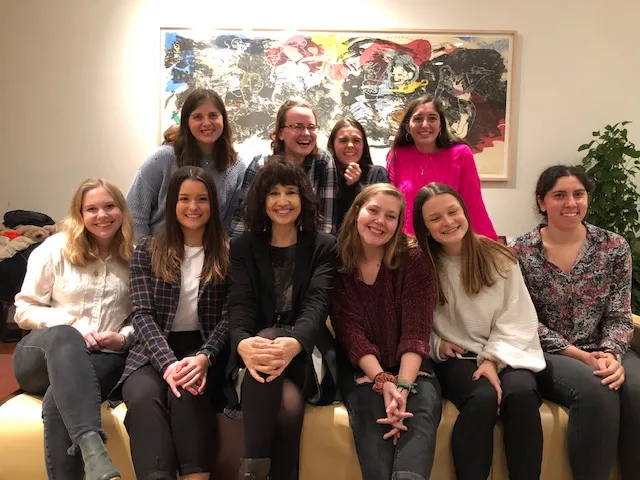
It took a village, or rather a city, to set up this year’s Translation, Theory, and Practice service learning project, which is designed to support French immersion programs in Louisiana by addressing one of their most critical issues: the lack of pedagogical materials in French.
The city of New Orleans has more than 1,700 students enrolled in its various French-language schools, and is the perfect location for a community-based collaboration project in French. Together with three of the city’s French public schools—Audubon Charter, Lycée Français de la Nouvelle-Orléans, and the International School of Louisiana—a group of dedicated, culturally competent, and community-engaged French students at Tulane University carried out the first phase of a new project last fall by translating half (200 pages) of a large body of pedagogical documents in collaboration with teachers from all three schools. With a focus on the history of Louisiana, these ‘scope and sequence’ documents are not only much needed tools for French immersion teachers, but also invaluable resources for parents and students alike.
I began spearheading this service learning project in January 2019, and in May of last year received a French Dual Language Fund (FDLF) grant from the FACE Foundation for $7,000 to support the participation of our public partners in the project. Targeting an extensive body of materials produced by the Louisiana Department of Education (LDOE), the project covers all the documents in the curriculum area of social studies that are specifically related to the teaching of Louisiana history. Together we translate these documents and publish their French versions for free online.
Throughout the spring of 2020, I will carry out the second and ongoing phase of the project with educators from our partner schools. Over a series of regular translation workshops, we will continue translating the second half of the materials, editing, formating, and submitting all translated pages for publication on the LDOE’s official website.
The growing success of French immersion in the U.S.—highlighted by the special case of Louisiana in a recent New York Times article—provides a wonderful foundation for stimulating community-based projects, which enables Tulane students to contribute to French education in the U.S. while enhancing their translation skills.

